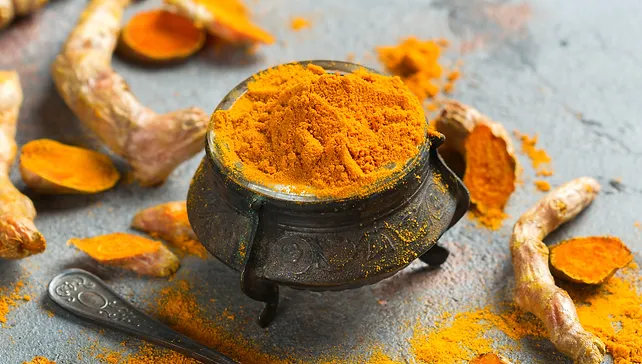It’s no secret that Alzheimer’s and dementia are two of the most prevalent and devastating neurological conditions, affecting millions of people worldwide. Now, however, a new study suggests that curcumin, a key compound in the traditional Indian spice turmeric, could be the key to treating these debilitating diseases. In this blog post, we’ll discuss the potential of curcumin to help treat Alzheimer’s and dementia, and how it could lead to improved treatments in the future.
What is curcumin?
Curcumin is a natural yellow-orange pigment found in the spice turmeric, which has been used in traditional Asian medicine for centuries. While turmeric is a well-known ingredient in Indian dishes and a staple in Ayurvedic medicine, curcumin is the active component that has powerful antioxidant and anti-inflammatory properties.
Recent research has demonstrated curcumin’s potential for treating Alzheimer’s disease and dementia, and scientists are currently studying its effectiveness in laboratory experiments. Curcumin has been found to reduce inflammation, which can improve memory and cognitive function, as well as inhibit the buildup of amyloid plaques which are linked to Alzheimer’s. It has also been linked to improving mood and reducing depression.
While it is not yet known if curcumin is an effective treatment for Alzheimer’s or dementia, its potential is encouraging. In the meantime, adding turmeric to your diet may help to reduce inflammation and provide other health benefits. As more research emerges, we may discover that curcumin could be the key to treating these diseases.
What does the research say?
Recent research has found that curcumin, an active ingredient in turmeric, could be a key factor in treating Alzheimer’s disease and dementia. This exciting new finding could be a major breakthrough in the treatment of these diseases, which affect millions of people around the world.
This study, conducted by researchers from the University of California, Los Angeles (UCLA), focused on the anti-inflammatory properties of curcumin. They discovered that curcumin has the potential to reduce inflammation in the brain and therefore help to reduce the symptoms of dementia and Alzheimer’s disease.
The team of researchers studied mice with Alzheimer’s-like symptoms and found that those that were given a daily dose of curcumin saw a decrease in inflammation, which was then followed by improved cognitive performance and memory.
In addition to its potential anti-inflammatory benefits, curcumin is known to have antioxidant properties, which can also help protect the brain from oxidative stress. This means that it could potentially protect against damage caused by free radicals, which are linked to a variety of neurological diseases.
While further research is needed to determine the exact effects of curcumin on Alzheimer’s disease and dementia, the current findings suggest that this natural remedy could provide a promising way to treat these conditions. If confirmed, it could provide a much needed alternative to existing treatments, which are often limited in effectiveness.
How can I add curcumin to my diet?
Curcumin, an active compound found in turmeric, has been gaining attention as a potential natural remedy for Alzheimer’s disease and dementia. While more research is needed to confirm its effectiveness, recent studies have suggested that adding curcumin to one’s diet may help improve cognitive function and protect against further decline.
Adding curcumin to your diet can be easy and enjoyable. The spice is widely available in powdered form and can be added to smoothies, curries, soups, stir-fries, and other dishes. You can also take curcumin supplements, which are widely available in capsule form. Keep in mind that the amount of curcumin varies among brands and products, so it’s important to read the label and follow the recommended dose.
For those who don’t enjoy cooking or taking pills, there are other ways to enjoy the benefits of curcumin. You can also buy curcumin tea, which is a great way to get your daily dose of the spice. Additionally, some food companies offer ready-made meals that contain curcumin as an ingredient, such as frozen curries or vegetable stir-fries.
Incorporating curcumin into your diet is a simple yet potentially beneficial addition to your overall health and wellness routine. However, be sure to speak with your doctor before making any dietary changes.
Are there any side effects?
While studies have shown that curcumin could be effective in treating Alzheimer’s disease and dementia, it’s important to remember that there may be some side effects when taking this supplement. While curcumin is generally considered safe, it can interact with certain medications, such as blood thinners and anti-platelet drugs. Additionally, it can increase the risk of bleeding, so it’s important to consult with a doctor before taking any supplement.
Some other side effects to consider include an upset stomach, diarrhea, or an allergic reaction. In rare cases, curcumin can cause kidney stones or gallstones. It’s also important to remember that taking more than the recommended dosage can lead to serious side effects.
Though there are potential side effects to consider, curcumin is still being studied as a promising treatment option for Alzheimer’s disease and dementia. If you’re interested in trying curcumin, always be sure to speak with a healthcare provider first and follow their instructions.



